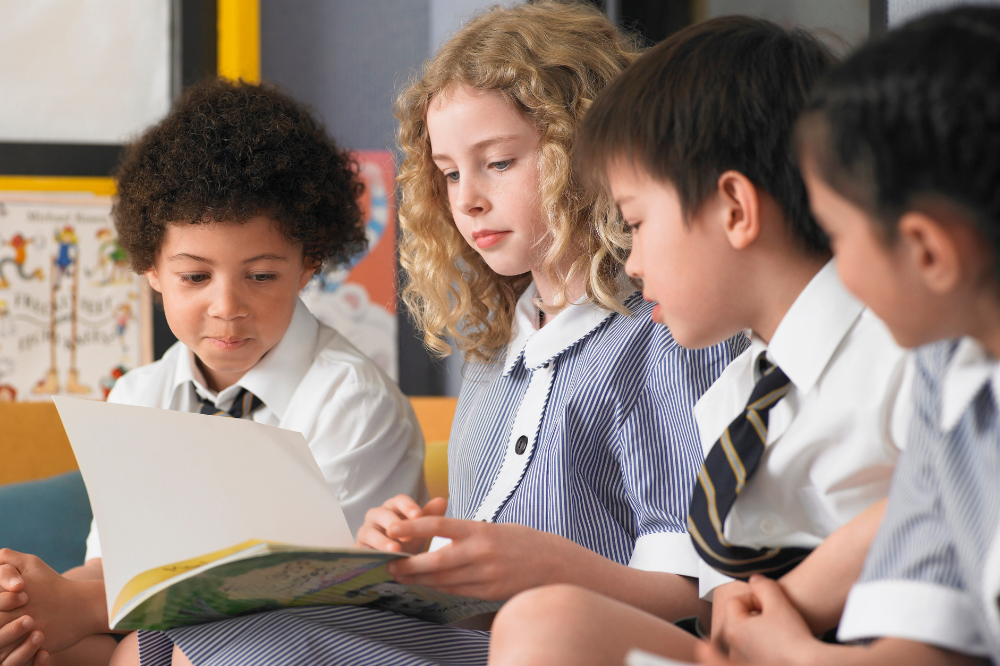
A new nationwide study into the teaching of reading in Australia’s primary school classrooms has been launched to “cut through the noise of media narratives” and “uncover the authentic experiences, challenges, and triumphs faced in Australian schools”.
The inaugural survey, conducted by the Primary English Teaching Association Australia (PETAA), will examine current pedagogical practices, instructional strategies, and resources used by primary school teachers, to build an accurate state of the nation when it comes to the teaching of reading.
It is hoped that the final report will serve as an essential resource for teachers, schools, and policymakers, providing evidence-based recommendations and insights to enhance literacy education across Australia.
How reading outcomes are tracking in 2024
Associate Professor Helen Adam, PETAA President and Researcher at the School of Education, Edith Cowan University, is leading the study.
When asked what the research says about the state of primary school students’ reading outcomes, Associate Professor Adam said the main evidence that attracts publicity is that of the annual NAPLAN testing.
"This test consistently shows that approximately 1/3 of Australian children are below the minimum acceptable standard set by ACARA," Associate Professor Adam told The Educator.
"What is very important about this evidence is that these outcomes are not across the board in that the children most likely to be underachieving in reading are those from rural and remote areas and children from what are often called marginalised and/or lower socioeconomic disadvantaged backgrounds."
Why the study was launched
Associate Professor Adam said there is a strong body of research around the most effective teaching practices for reading instruction and improving student outcomes.
"You often hear this referred to as evidenced based practice around the key reading skills of phonological awareness, phonics, oral language, vocabulary, fluency and comprehension," she said.
"What we hope to find in this survey is the often absent voice of teachers in how they're approaching the teaching of reading to address the best outcomes for all children."
Associate Professor Adam said the teaching of reading is arguably the most political aspect of education due to the imperative of all children needing to learn to read effectively and efficiently.
"There are often increasing directives and policies aimed at teachers and how they should teach this critical subject and likewise there are many much publicity and focus on the continued underachievement of disadvantaged children," she said.
"In much of the ongoing focus and at times political debates, the voice and perspectives of teachers is astoundingly absent."
Associate Professor Adam said that as a professional organisation dedicated to supporting primary English teachers PETAA wants to address this gap in the conversation and add these important voices.
So what really works when it comes to teaching reading?
In 2006, a national inquiry into the teaching of literacy (and specifically into reading) was launched, with similar studies also conducted in the U.S and Britain. Associate Professor Adam said these three national studies all found similar findings relating to the importance of teacher knowledge as to what strategies to use and for what purpose.
"Since that time there's been an ever growing body of research focused on what is now recognised as evidence based practice that informs the teaching of reading," she said.
"This is translated into specific requirements within initial teacher education, into directives from different education departments as to how schools should approach teaching of reading, they've influenced the national curriculum and so on."
Associate Professor Adam said professional bodies such as PETAA naturally draw on this important research to develop professional development opportunities to assist teachers in understanding and applying the outcomes of these research studies.
"Going back to this survey part of what we will be looking for is what is it that teachers themselves feel they need in regard to professional development opportunities," she said.
Associate Professor Adams said her own personal specific research focuses on the importance of providing diverse teaching resources.
'These include diverse children's books, curriculum texts and other resources, as well as culturally responsive practice to ensure that all children can see themselves included in the curriculum as my research and that of others shows that this, combined with effective teaching practices, makes a difference to children's outcomes also."
Associate Professor Adam added that PETAA also provides professional learning in this area knowing it is helpful to children's outcomes.
When asked what strategies leaders can use to ensure equitable access to high-quality reading resources for students from different socioeconomic backgrounds, Associate Professor Adam pointed to the importance of leaders being proactive advocates for change.
"School leaders are faced with a challenging task of interpreting research evidence, interpreting policy and a requirement to address the impact of socioeconomic backgrounds," she said.
"Because of that I believe there's an added component to school leadership to advocate for equitable funding and support to provide the kind of reading resources and effective teaching that all children are entitled to."


